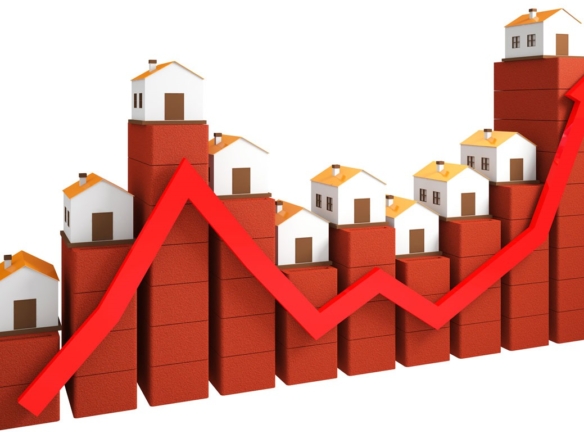Real Estate is an investment regardless of how you see it. Whether it’s buying a property to call home or looking to generate passive income as a rental property, investing in real estate is an excellent way to create predictable long-term income and is a great way to build wealth over time.
There is an investment opportunity for everyone from working with REITs, residential properties, commercial properties, or flipping homes.
There are plenty of advantages to investing in real estate that includes:
Steady Cash Flow
Owning real estate as an investment vehicle provides a steady monthly stream of income when the property is used as a rental. However, the amount of rental income will vary depending on factors such as what the market will bear and your CAP rate, which is slang for the amount of rent you can charge versus what you pay on your mortgage.
Passive Income
In addition to a steady stream of income, rentals are also a passive source of income for owners most of the time. As long as the homes are operational or “livable” and your tenants pay on time, your monthly payment requires little in the way of upkeep and maintenance.
Long-Term Equity Growth
Over the length of homeownership, your property will increase in value while your debt obligations will decrease in time, building you long-term equity with your investment.
Inflation Protection
Owning a home offers the ability to stay even or ahead of the inflation rate. As the price of goods and services increases, rents often increase to keep up. Homeownership provides a steady income stream that keeps up with the demands of inflation, providing an extra layer of security for the owner.
Stable Income
Not to beat a dead horse, but homeownership allows for a continuous, steady income stream. As long as the property is occupied and the tenants pay, you’ll be able to have a guaranteed monthly income.
Tax Advantages
With homeownership come particular tax advantages. For example, you can deduct various costs, fees, and property taxes on your overall tax burden, saving you money as a result.
Property taxes, mortgage interest, property management fees, maintenance costs, property insurance, and costs of repairs are just some of the advantages offered to homeowners.
Diversification
One of the primary investment rules is to diversify your investments to limit the amount of risk your money is associated with, especially in times of economic uncertainty. real estate offers a long-term investment that appreciates in value over time and is considered a safer investment than traditional stocks and bonds.
Leveraging Finances
In almost no-other investment opportunity can an individual investor use someone else’s money to make equity and wealth.
Here’s how it works; a homeowner chooses to buy a home to rent out as an income opportunity.
They make a downpayment and pay off the rest of the home with a mortgage loan.
The loan is “someone” else’s money that you are using to purchase the home you couldn’t afford outright. Still, during the loan length, you accumulate income and generate equity in the property, which builds the homeowner’s wealth.
The principle behind leveraging is using other money or debt to build individual equity.
Becoming a landlord does have some risks, and mitigating your risks from vacancies to evictions and other legal requirements is something a landlord should learn before investing in real estate, but the opportunity is there.
Other Real Estate Investment Opportunities
In addition to owning real estate as a landlord, there are other ways to increase your investment opportunities while minimizing your risks. REITs, or real estate Investment Trusts, Wholesaling, and Flipping are all great strategies to build wealth through real estate.
REITs
REITs are legal entities or mutual funds that multiple investors join to earn a percentage of ownership in any property.
Typically, investors contribute a set amount and gain a specific percentage of ownership. However, since the ownership is spread out through the entire investment group, this vehicle is an excellent way for individual investors to have a small financial risk to ownership.
The downside is that this type of ownership stake is smaller than if you owned the property outright.
Wholesaling
Wholesaling is a process where an investor acts as the middle person between a seller and buyer of real estate. The wholesaler never takes hold of the property but acts as a go-between of the seller and the buyer.
For their actions, a wholesaler makes their money through what is called an assignment fee. To learn about assignment fees and the opportunities in wholesaling, read this assignment fee guide to help you determine if wholesaling is the correct type of investment opportunity for you.
Flipping
Home flipping is the process of buying a home, often at a below-market price, updating it and making some improvements, then selling it for much more than the original purchase price.
Typically, a flipped home can make a lot of money in a short amount of time, but there are risks associated with it.
For one, it can be challenging to find a home below the market.
Second, you need either skills or cash to do the remodeling before reselling.
Finally, if you don’t have an understanding of the real estate market in that area, you may put a ton of money and labor into a property and not get the return on your investment that you had hoped.




